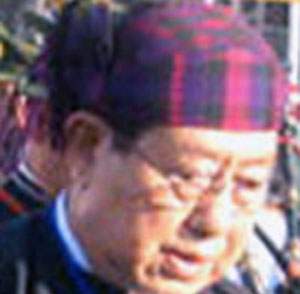The Kachin Independence Organization (KIO), one of the main ethnic armed groups in Burma, said Burma’s new government will avoid ugly images in the beginning as it tries to erase bad images from the previous 49-year military rule of the country.
James Lum Dau, Deputy in-charge of KIO Foreign Affairs, based in Bangkok, Thailand, said the new government, still essentially under control of the military, will try to avoid the new ugly images like civil war with the KIO and United Wa State Army (UWSA), which rejected the disarmament proposal of the central government.
The Burmese military handed over power to the new government, led by former army general, President Thein Sein, on March 30. However, Thein Sein’s government has not made any policy regarding ethnic armed groups.
 Both the KIO and UWSA, the strongest ethnic armed groups in the country, who demand self-determination and establishment of a genuine federal union, say they are prepared for an offensive by the new government, however, they will not start a war with the government.
Both the KIO and UWSA, the strongest ethnic armed groups in the country, who demand self-determination and establishment of a genuine federal union, say they are prepared for an offensive by the new government, however, they will not start a war with the government.
Lum Dau said, “There is no constitution in the world which cannot be amended. The military-favored 2008 constitution can be re-amended too if lasting peace and mutual understanding can be built between the new government and ethnic armed groups.”
The military government broke the 1994 ceasefire agreement and officially labeled the KIO as “insurgents” in October last year. However, the KIO rejects that accusation and insists it was wrongly labeled by the government, Lum Dau said.
The military tension has escalated between the two sides’ troops in Kachin State and Northern Shan State but both sides have avoided war so far.
He added, the KIO is now seeking lasting peace through restoring the Panglong Agreement, the multi-ethnic union of Burma which was reached in 1948 between Burman leader Gen. Aung San and Shan, Kachin and Chinese ethnic leaders.
Currently, peace mediator Rev. Dr. Saboi Jum, former General Secretary of the Kachin Baptist Convention (KBC), is trying to establish a political dialogue between both sides by keeping the conditions of the ceasefire, KIO officials said.
Duwa Maran Zau Awng, former people’s representative of the National League for Democracy (NLD) Party, for Waingmaw Township, in Kachin State, who currently lives in Florida, USA, warned KIO leaders by saying, “The KIO should be wary of accepting a possible political offer from the new government without protecting Kachin political rights.”
The KIO, a key member of the ethnic political and military alliance called the United Nationalities Federal Council (UNFC), is now waiting for the new military-backed government to reveal its policy on ethnic armed groups.
The UNFC was formed in February to oppose the new military proxy government if it starts a war against the ethnic armed groups who rejected transforming their armed wings into the Burmese Army-controlled Border Guard Force.



